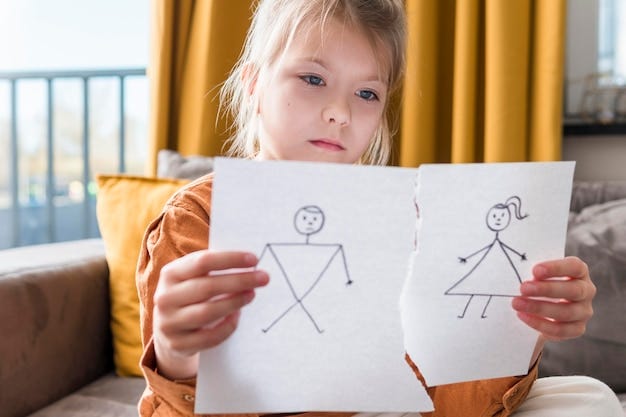Culture Determines What Counts as a Disability
An impairment is only considered a disability when it affects a culturally valued trait that everyone is expected to have
Why Don’t Humans Have “Flying Disability?”

Humans have many physical limitations we don’t even think of as such.
We can’t fly.
We can’t see infrared or ultraviolet.
We can’t navigate purely by echolocation.
We have a poor sense of smell compared to many other species.
From the perspective of a bat or a bee, humans are sadly lacking – even disabled.
Humans have yearned to fly for perhaps as long as we’ve existed as a species. Even the development of planes and helicopters hasn’t stopped humans from dreaming of flight or wishing we had wings.
So, why don’t humans consider ourselves to have “flying disability?”
Humans don’t have “flying disability” because none of us can fly.
A disability that everyone shares doesn’t look like a disability at all.
The proverbial fish in water doesn’t go around wishing it could breathe air instead.
By contrast, a person who can’t walk lacks an ability that almost all humans take for granted.
Thus, on top of being unable to walk, they’re also seen as disabled.
The absence or impairment of a trait is only considered a disability when everyone is expected to possess it.
Why Aren’t American Children Diagnosed With Art Learning Disabilities?

It’s not enough for an ability to exist in some, but not all, humans.
The lack or impairment must also affect an ability the culture values.
For example: a present-day American schoolchild who can’t read may get a learning disability diagnosis. By contrast, a child who can’t draw won’t be diagnosed with an “art disability” or assigned to remedial art classes.
That’s because present-day American culture judges reading, and not art, to be necessary for a successful life.
In some parts of the world, people’s survival depends on their ability to navigate without a map or compass or to find water. In such environments, lacking these skills is a severe disability.
In present-day America, most people never need to learn these skills. Thus, we don’t think of lacking them as a disability. We may never even think of these survival skills as “skills” at all.
Why Isn’t Every Human Imperfection a Disability?

You may be wondering: if culture turns negative traits, or lack of positive traits, into disabilities, why isn’t every human imperfection a disability?
Everyone isn’t tall, beautiful, and kind. Yet, we don’t think of being short, ugly, or selfish as disabilities.
How are these imperfections different from limitations in movement, sensory perception, learning, academic skills, or socializing?
What determines which limitations we treat as disabilities?
First, consider walking. For obvious reasons, human cultures usually consider it important to be able to walk.
Assistive technology (such as wheelchairs, carbs, and curb cuts) makes it possible for people who can’t walk to move and participate in public life. However, these options are much slower, harder to use, and pricier than walking.
Thus, life becomes much harder for people who can’t walk. They may need help to manage even “everyday” activities like eating and dressing.
This example illustrates 2 more essential ingredients of disability.
First, the person has a disability in a skill that matters in their environment.
Second, the skill matters so much that the person needs an unusual amount of help to manage what most people can do easily, unaided.
Both importance of the skill and dependence on others are necessary ingredients of a disability.
What “dependence on others” means varies depending on the person’s age, environment, and needs. It isn’t always a matter of literal survival.
For example, a schoolchild with ADHD may need minor accommodations such as sitting in the front row, receiving instructions in writing, or getting extra time on tests. While school accommodations like these usually aren’t literally a matter of survival, they can transform a child’s grades and self-esteem.
Only some human imperfections lead to dependence on others, so only those are considered disabilities. That’s why we value height and beauty, but don’t see lack of these traits as a disability.
For example, Americans view taller people as more attractive, and may give them higher salaries (especially among men). However, this prejudice doesn’t actually prevent short people from taking jobs or performing “activities of daily living.” Short people generally are no less independent than tall ones. Thus, being short is only considered a disability for a would-be basketball player.
Similarly, most careers and activities of daily living don’t require a person to be beautiful. Ugly people are just as independent as their beautiful counterparts, so they would only be considered disabled if they aspired to become models.
The arbitrariness of what we consider a “disability” is obvious when we compare the social consequences of being extremely ugly versus being autistic.
Both ugly and autistic children can be ostracized and bullied by their classmates while teachers look the other way.
Ugliness and autism are both inborn characteristics – one a visible characteristic of the body, the other a set of invisible characteristics in the brain. Neither are a matter of choice.
Yet we deem ugliness to be a normal, though undesirable, trait and autism to be a disability.
We often judge those who bully ugly children to be shallow and cruel. By contrast, we justify those who bully autistic children. We claim that the autistic child must have provoked bullies by doing something inappropriate. We say they lack the social skills to handle bullies.
People justify bullies this way whether or not the autistic child has a diagnosis.
We try to improve autistic children’s social skills by pushing them into intervention programs as early as possible. We don’t try to improve ugly children’s appearance with “early interventions” in their fashion and grooming.
In adulthood, people continue to avoid or insult both autistic and ugly people, putting them at a disadvantage in career advancement, mental health, and relationships.
Lack of beauty differs from lack of “social skills” because autism is considered a disability and ugliness is not.
Would you try to cure ugliness? Do you support research into genes that cause it or medical means of treating it?
What about autism?
Researchers try to discover genes that cause autism, often hoping to prevent it from developing or to remediate it. To my (limited) knowledge, no large fields of research are attempting to do the same with genes underlying physical traits seen as unattractive.
We most likely have the technology to “cure” ugliness and could get enough funding for such a project.
The difference between autism and attractiveness is not about genetics.
[OBLIGATORY DISCLAIMER: This discussion of “ugliness” and lookism is intended to describe cultural attitudes. It doesn’t reflect my own opinions and isn’t intended to hurt anyone. Because I live in a culture, I’ve absorbed some of its standards of beauty. However, I view all human beings as equally valuable, regardless of appearance.]
Culture-Bound Mental Illnesses

Mental illnesses are a type of disability, because they make it harder for people to do things independently. For example, people experiencing depression may have difficulty getting out of bed or starting tasks.
Some mental illnesses exist only in a specific culture. These “culture-bound syndromes” are perhaps the most striking example of how cultures define disabilities.
The American Psychological Association (APA) provides a long list of culture-bound mental illnesses, including:
“amok, amurakh, bangungut, hsieh-ping, imu, jumping Frenchmen of Maine syndrome, koro, latah, mal de pelea, myriachit, piblokto, susto, voodoo death, and windigo psychosis.”
These mental illnesses are not included in the Diagnostic and Statistical Manual of Disorders (DSM-5).
In “amok,” which men in Southeast Asia experience, “the individual experiences a period of social withdrawal and apathy,” then makes “a violent, unprovoked attack on nearby individuals. The aggressor eventually collapses from exhaustion and afterward has no memory of the event.”
Americans do not appear to experience these symptoms. Do they really not feel or behave like people running amok? Or do we simply fail to recognize, diagnose, and treat it?
Personally, I suspect that a few Americans do follow the amok pattern, but we don’t realize it because we don’t recognize and name it.
Furthermore, because “amok” is not an entity for us the way anxiety and depression are, the mentally ill people themselves don’t interpret their own symptoms in terms of “amok.” Instead, they interpret their withdrawal, aggression, and amnesia as signs of something else that Americans do recognize.
Perhaps their expectations even change their symptoms. Do expectations about mental illnesses hold enough power to change what we actually feel?
Do Americans not experience amok because they expect to experience something else?
Cultures Define a “Disability” to Describe Limitations in a Valued Ability Everyone is Expected to Have
Humans, being imperfect, lack many positive traits, both individually and as a species.
Yet, we only call some of these imperfections disabilities.
And, in practice, only some of these imperfections make it hard for people to do things in the time and place they inhabit.
Disabilities are the absence or impairment of:
An ability that every person is expected to have (such as walking).
A valued ability (one considered to be good and important, such as reading).
An ability necessary for independence in the culture (such as speaking).
Elsewhere, I argue that culture creates and removes disabilities.
Here, I go further: culture defines what counts as a disability at all.
These conclusions might startle some people.
Many people think having a disability – not being able to do things or live independently– is the same thing as having a physical limitation. Furthermore, they often picture an extremely noticeable limitation, such as being unable to walk or see.
In fact, what a person can do and how independently they can live is determined by their environment, not just their minds and bodies.
That’s why some people with a visible, severe physical disability can move, speak, read, and work.
That’s why some people with an invisible, mild-looking disability can’t get out of bed.
This change in perspective opens up vast possibilities for improving the lives of people with disabilities.
Come explore them with me.
…
And please feel free to share your thoughts in the comments below – whether you
agree,
disagree,
are confused,
don’t care,
want to tell a story, or
have another example.
You never know when your idea will spark an insight in someone else.





Great point! And unfortunately, an example I've experienced. I honestly believe anything too far outside the "normal" part of the bell curve can become a disability.
Verbal skills too good? People don't understand you, make fun of you until you deliberately learn to use those same skills to code switch.
Creative? School will bore you to tears, many of your teachers will dislike you and lower your grades for failing to follow instructions exactly. People will think you're just trying to change the way they do things to be "difficult." Often, your ideas will simply go unappreciated because it often takes creativity to recognize creativity.
But good hearing is a better example because it's objective.
Perhaps this point should be its own post. Thank you 😁
Something that interests me, especially regarding autism, although I don't think this is necessarily exclusive to autism, is when a *positive* trait, or an ability that most people in a culture don't possess, becomes a disability.
Because not everything that makes autism disabling is an impairment or a lack of an ability that most people have. We often have outrageously sensitive hearing, for instance, and can hear at frequencies or volumes that most people can't, and that can be disabling when it means that you get hurt far more easily than most people, or are expected to function in auditory circumstances that don't bother most people, or can't even explain to others what's wrong because they literally cannot hear what you hear.